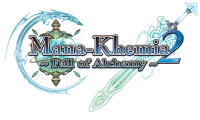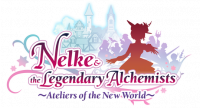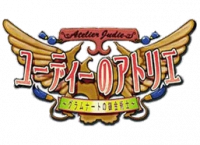The Atelier Series: Where to Start?
As the Atelier series approaches its 25th anniversary and its twenty-second mainline entry (with countless more side games, remakes, and remasters) it can be hard to tell a new player where to start. Here at RPGamer, we have several staff members who, having jumped into the series at various points along the way, have put together their thoughts on each part of the series and whether it would make a good starting point for potential first-time players. For simplicity’s sake, we will not be discussing all the titles only available in Japan — though some of them are excellent and if you fall in love with the series, it may be worth checking out the very end of our list!
There is no strict timeline associated with the Atelier series as a whole. In a lot of ways, it is similar to Final Fantasy and Dragon Quest, whose games may share loose characteristics, but don’t necessarily require a specific order of play. Each story arc in the Atelier series is comprised of two to four games, which can each be played independently but together knit a larger narrative. These games are not strictly connected story-wise between each arc, but they are linked in terms of central lore, combat and alchemy mechanics, alongside other small world building details.
By Michael Baker, Joshua Carpenter, Alex Fuller,
Anna Marie Privitere, and Sam Wachter
The Arland Arc
Games: Rorona, Totori, Meruru, Lulua
Available on PlayStation 3, PlayStation Vita, PlayStation 4 and Nintendo Switch
DX upmakes available on PC, PlayStation 4, Nintendo Switch
The Arland Arc focuses on the kingdom of Arland and the surrounding regions as the kingdom expands its borders then sheds the monarchy of each for a more democratic government system. Approximately 15 years pass between the start of the first game (Rorona) and the third game (Meruru) and there’s plenty of eventful history racked up within that period of time. Originally a trilogy, the Arland Arc recently saw a fourth entry added which picks up the story many years later, with numerous returning characters as well as interesting new faces. The Arland Arc equally weights both alchemy and combat, which was a new trend for the series. The original three games can be played in almost any order without major story spoilers, though Lulua expects players to be familiar with the events that precede it. While the original trilogy made its debut on PS3 and Vita, upmakes with a “DX” added to the titles, are also available on PC, PS4, and Switch. While Totori and Meruru DX remain largely unchanged, Rorona‘s adventure sees some fairly significant overhauls.
If you want to start near the beginning of the series, and see how the series has evolved, Arland is the perfect place to do so. However, these games are not as beginner-friendly as some of the later titles, so if strict time limits and multiple replays discourage you, keep reading for alternative suggestions.
The Dusk Arc
Games: Ayesha, Escha & Logy, Shallie
Available on PlayStation 3, PlayStation Vita
DX upmakes available on PC, PlayStation 4, Nintendo Switch
The Dusk Arc focuses on characters who are looking for ways to save their respective regions from an ongoing and long-term ecological crisis. There is not a strict time period that the Dusk trilogy takes place in; the player has three in-game years to finish Ayesha, after which there is a four-year gap, then four in-game years to finish Escha & Logy, followed by another three-year gap before the story of Shallie begins. Much like the Arland Arc, these games do not need to be strictly played in release order, though the story makes the most sense when they are played in sequence. While the original trilogy made its debut on PS3 and Vita, Koei Tecmo has released upmakes with “DX” to the titles which are available on PC, PS4, and Switch
If you want to explore the series with relaxed or entirely absent time limits, Dusk is the perfect place to begin your Atelier journey. However, if you’re looking to enter the series with a selection of titles that focuses primarily on alchemy, keep reading for alternative suggestions.
The Mysterious Arc
Games: Sophie, Firis, Lydie & Suelle
Available on PC, PlayStation 4, Nintendo Switch
The Mysterious Arc was a time of transition for the Atelier series, and the growing pains are evident in this particular trilogy. The first game in the set (Sophie) was the last title of the series to land on PlayStation 3, with its successor Firis being the last Vita entry, which taxes the handheld beyond its capabilities. Lydie & Suelle was the first game to arrive on Nintendo Switch, and the series made its debut on PC via Steam with Sophie. The name Mysterious springs from the fact mysterious events that were set into motion hundreds of years prior are now affecting the modern time, and it is up to the burgeoning class of alchemists to take on these challenges to free their future from the mistakes of the past. All three games attempted unique mechanics and overhauls to the alchemy part of the games, with some working better than others — for example, Atelier Firis is an open-world experience. These games are expected to be played strictly in order. Sophie and Lydie & Suelle both eschew time limits, while Firis has one in-game year to earn her licence before time limits disappear entirely.
If you want to explore the series with minimal to no time limits, with games designed for the current generation of consoles, Mysterious is the perfect place to begin your Atelier journey. However, if you’re looking to enter the series with games possessing a stronger sense of identity and established series mechanics, this may not be the right trilogy for you.
The Secret Arc
Games: Ryza, Ryza 2, perhaps more to come
Available on PC, PlayStation 4, Nintendo Switch
The newest trilogy of Atelier games is still in development, with the first title, Ryza, being available now. Atelier games tend to arrive at a pace of one new title every twelve to twenty months, so the Secret series is projected to wrap up in 2022. Much like the Mysterious trilogy, Ryza does away with the time restrictions of the previous titles, though it does have a weekly cycle which affects a variety of gameplay elements. Ryza is also the first of the modern Atelier games to lavishly award exploration and gathering, as opposed to viewing it as an ends to gather alchemy materials.
We don’t yet know if the Secret Arc can be played out of order, but considering recent changes to the series, expect to need to tackle these titles in release order, particularly with the announcement of Atelier Ryza 2, expected to launch in North America and Europe around late 2020 or early 2021. The game is set three years after the completion of the first Atelier Ryza title.
If you want to explore the most recent entry into the series, Secret is the perfect place to begin your Atelier journey. However, if you’re looking to enter the series with a full roster of released games, these may not be the right games for you.
Consumed all the Atelier games above and looking for more? There’s additional titles in the series to consider, though we’ve grouped them down here as they’re less accessible.
The Iris Arc
Available on PlayStation 2
The Iris series began as an experiment by Gust into more mainstream styles of RPG, which led to it being more focused on action, combat, and story. Unlike later Atelier titles, which add more depth and complexity to the alchemy systems and where quality and traits can drastically alter the final item, in Iris creation is simple: pull elemental essence from items, get results. The games have unique exploration abilities, such as transforming into a rabbit or flying (later games, such as Escha & Logy, do borrow this concept.) Iris 2 introduces new protagonists while making exploration less clunky and complex; Mana remains the focal point of both the story and alchemy system, which is streamlined from the first title. The third title in the series sees Iris returning as a main protagonist, as opposed to a supporting character, and reduces the part to just three characters; though it is generally considered the weakest of the three Iris entries, it wraps up storylines which were left a little dangling by the first two titles, and the trilogy as a whole introduces Hagel Boldness, who goes on to become a staple of future Atelier titles. Because of the tight-knit stories, they are expected to be played in order.
If you want to explore combat over the various alchemy systems, this is a great option to add to your Atelier library. However, acquiring copies of these games is becoming more challenging, especially if you prefer physical copies.
Mana Khemia Spin-offs
Games: Mana Khemia, Mana Khemia 2
Available on PlayStation 2, PlayStation Portable
The Khemia titles focus around the Al-Revis Academy, whose primary goal is to train up the alchemists of the future. Much like the Iris titles, the two games are quite different from modern-day Atelier titles, though glimpses of what will become full-fledged ideas in future titles can be seen for those looking. For example, in the second Mana Khemia game, players can discover new recipes by completing key alchemic tasks, a system which is later fully developed in Atelier Sophie. As the school is focused on learning, characters do not grow by throwing themselves into combat; instead, items must be crafted which improves a character’s stats and unlock new abilities. Mana Khemia 2 also introduces a barter system, where items which the protagonists sell can later be re-purchased; this system would eventually morph into the Wholesale concept introduced in the Arland arch and a staple of the series since. Mana Khemia 1 & 2 are direct sequels and are expected to be played together, in order.
If you want to explore an Atelier game with a solo male protagonist, this pair of titles may be right up your alley. However, acquiring copies of these games is becoming more challenging, especially if you prefer physical copies.
Side Stories
The Atelier series is no stranger to spinoffs, though these by and large have not been translated, but a pair made it outside Japan. We’ve listed them below.
Atelier Annie (DS)
While Annie is a stand-alone title, many of the gameplay elements that made their debut here would be developed further and go on to become interesting staples for other titles. This includes rewarding players for doing a task well, or in a timely manner; revealing more about characters the more time you spend with them; maintaining a good reputation among the townsfolk and more. Annie also kicked off the tradition of having gut-busting, laugh out loud moments with stellar localization work. Annie is also somewhat unique in that combat and alchemy don’t need to be balanced; players can choose to throw themselves into one or the other and still gain a full game experience. If you’ve still got an original DS or 3DS floating around, Annie can be knocked out in about fifteen hours, though like other classic Atelier titles, most players will be motivated to play through the game multiple times to experience everything the title has to offer.
Nelke & the Legendary Alchemists: Ateliers of the New World (PC, PlayStation 4, Vita, Nintendo Switch)
Launched to celebrate the 20th anniversary of the Atelier series, Nelke is the rare main character who is not an alchemist herself. Instead, she relies upon the alchemy skills of the greatest alchemists of legend, who have been temporarily yanked from their home timelines into Nelke’s kingdom. As the leader of a smaller borderland village on its way to becoming a sprawling metropolis, Nelke must choose how to prioritize all of the many characters’ tasks as well as building up relationships to them. The gameplay is quite different from other recent titles in the series and is more about time and personnel management, giving it something in common with the older titles. Your enjoyment of Nelke will be predicated upon how many other titles that you’ve already played in the series, so try tackling it after you’ve got a few other games under your belt.
Untranslated Titles — The Salburg-Gramnad Arc
The Atelier series had five mainline entries become cult classics in Japan before the series ever made its way to the rest of the world. We’ve listed them below.
Games: Marie, Elie, Lilie (Salburg) / Judie, Violet (Gramnad)
Available on classic platforms (mostly PlayStation 2)
The original cadre of alchemists may have had humble beginnings on the Saturn, Dreamcast, and original PlayStation, but they’ve also had demakes for the Japanese cell phone networks and upmakes for Windows and later PlayStation consoles, though none of them have seen much attention since the PSP era, and nothing in English. This is particularly vexing for those who fell in love with their heroines while playing Nelke, and it would be great for Gust to revisit the oldest games in the long-running series. Though the company seems to be open to taking feedback on the idea, no announcements have been forthcoming. If you want to explore the oldest Atelier titles and have a functional Japanese vocabulary (or skill in finding fan translations), it’s worth checking out the earliest entries in the series to see where things all began.
Atelier Marie sets the base template for the entire series and is a rare game that can be said to have redefined its niche in the genre. That does not make it the best game to start with, as its story is very minimal, it has no area exploration, and its mechanics are a little crude compared to its successors, but it’s got a certain charm as it follows alchemy’s cutest academic drop-out in her quest to prove she has what it takes over the course of five years.
Set a few years after Marie, Atelier Elie actually comes with a bonus audio CD to fill in all the backstory that couldn’t be included in the game itself. Elie was inspired by the alchemist who saved her life, Marie, and has five years to study in the great Academy. It works well with the first game as a contained experience, so if you play one, it’s worth it to try the other.
The third Salburg game, Atelier Lilie, takes things back to about twenty years prior to Marie, telling the tale of the founding of the great academy. Its titular heroine has arrived from overseas with her master and his two protegees, Ingrid and Hermina (Marie and Elie’s future academic advisors, currently age 10), and has to work to prove that alchemy is useful. Unfortunately, as the series’ first PS2 title and its first attempt at a more modern Atelier, Atelier Lilie is fundamentally broken at several points. Be sure to pick up the Plus edition for PS2 if you want to try it, but there’s reasons why this one hasn’t been remade for anything else.
The two Gramnad games (for PS2 and PSP) are closer to Atelier Lilie in some ways, but add in some important new elements like actual area exploration. They also add some less spectacular ideas — in particular, item deterioration — that have not been seen since. Atelier Judie takes place about ten years after Lilie, and an older Hermina is an important part of the cast. Judie was also the first game of the series to not have an end-date built into the story, so it just keeps going until Judie figures out how to fulfill her goals and decide which of two endings to stick with.
Atelier Violet (or Viorate, if you must), while named as a Gramnad game, takes place on a different part of the map from Judie, and only really has one location and one character in common: Pamela Ibis can be found in both games, in all her ghostly glory. Violet falls in after Elie in the timeline, and includes one of Elie’s old classmates as a sort of mentor character for Vio. Time limits return for this one, with Vio having three years (plus a possible extension) to prove she can survive and prosper while her parents are out touring the world. Otherwise it’s a fairly open game without much of a goal or direction for Vio beyond self-improvement, building up the hometown, and maybe a few shots of carrot liqueur.
These five are the core games of the Atelier original canon, but they’re not the end of it. There are several spin-off titles made for handhelds that are of less than canon status, though still mostly worthwhile. First, skip the Game Boy Color games; they are the reason the word ‘mostly’ is necessary. The story of Marie and Elie continues in Futari no Atelier (Atelier for Two), for the Wonder Swan Color. Unfortunately, this is also the single rarest and most expensive game in the entire series, so it’s only for the serious collectors.
Slightly more obtainable is Atelier Marie, Elie, & Anis, the Game Boy Advance title that serves as a capstone to the Salburg chronology. It includes all the characters from Marie and Elie, with bits of background to show what they have been up to and how their own stories have continued. This game also has the most refined version of the early series alchemy and a broad set of goals that do not all need to be met.
While acquiring legal copies of these titles is generally cost-prohibitive, and applying translation patches when one exists can be challenging, for those who want to begin at the very beginning and are willing to put in the effort, seeing these gems shine can be a unique reward.
What was your favourite Atelier game? Would you recommend a specific starting point? Join the conversation by dropping a comment below!






























This is one massive(ly helpful), wonderful collection of knowledge on the series! I’m sure I’ll reference it many times throughout the years. My favorite is Lulua, but I’ve got limited experice against which to compare, so always looking to play more.
I’ve still only played Atelier Annie, but it looks like I would enjoy many of the other games in the games since I did like that one. I’ll get to them. . . someday.
This was a great idea for a feature! Especially now so many of the series are popping up on Switch. Much appreciated.
This was a great feature, thank you for listing all these!
As someone who first started in PS2 (Mana Khemia Series), playing the old ones is hard tbh… especially Judie (her only goal is to return to her time, only that. We left to figure out what to do) I legit crying when i’m lost…
Viorate is…simple, fun, but i despise the item detoration system… i always forget i got a perishable stuff and just continue exploring(?), and when returning to Atelier, bam. It’s rotten :<
After, i found Atelier Iris trilogy, and it was a fun experience. I especially like the interaction on Atelier Iris 3 lol because the characters vibe almost the same as Mana Khemia series
My favorite in the whole series is Mana Khemia 2 (because it's the first one i played ww), followed by Atelier Rorona. I love Rorona BECAUSE RORONA MAJI TENSHI!
Thank you!